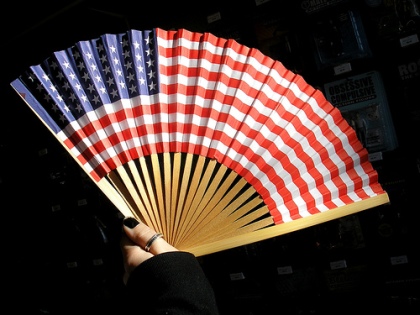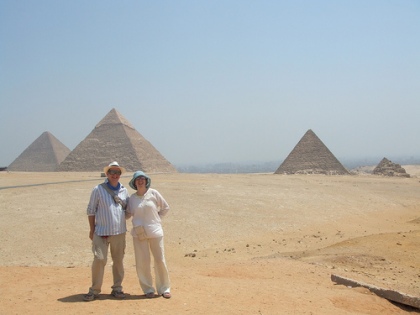In the (b)Log

Folks, I’m in the middle of backing up The Establishment here in Washington, and preparing to open up shop In Merry Ole soon, with stops at the someday-hopefully-an-alma-mater, so nothing substantive for the moment. But just so you don’t think I don’t love you, here are some Links To Amuse:
Unnatural Lincoln-Calhoun hybrids
I’m fairly surprised at the compositor’s (ideologically and morally) bizarre choice. I am emphatically not surprised that the first Cowen/Tabarrok co-production was about the public choice theory of the Marxist of the master class.
(Bonus! In the comments, someone declares Calhoun “a good looking man,” further demonstrating to what heroic lengths some people will go to be wrong.)
Ranke and his Archive of Truth gets the History of Science Treatment (nb: paywall for non university folks)
(h/t to Historiography Lab)
Three series of historical iconographyof the Tower of Babel.
Fascinatingly variable, apparently. (h/t)
The State as a nexus-of-contractors
A really interesting idea from one of the brilliant orgtheorists, which I wish I had time to think about a bit more fully, but don’t right now. Seems esp. relevant to the early 19th century, when the American federal state, was largely contractors.
Image cite: Max Klingensmith, “Chain Linkage,” Flickr, CC License
Filed under: Archival Follies | Tags: and I was tired, Awesome, Index, It's late, NPH, Unicorn
Or, Craaazy Cross-Referenced Cacophony of Cool

Sometimes you can tell a source is going to be good just from the index.
Case in point, some selections from the index to the “Squadron Letters” (reports to the Navy Department) for Commodore John H. Aulick’s cruise to China, 1851-1853:
California Joe, Chinese coolie, participation in mutiny on the ROBERT BROWNE, 510
…
CELESTIAL, American clipper ship, chased by a fleet of piratical junks, 565, 685
…
Flag, United States:
Insult offered to, by the govt of Zanzibar, 267
Saluted by the govt of Zanzibar, 238, 239, 262, 265
…
Flogging, effects of abolition of, in the US Navy, 99, 100, 161, 162
…
Shipwrecked Japanese mariners:
Death and burial of leader, 717
Protest their return to Japan in one of our warships, 477, 478
ST MARYS ordered to receive them on board from U.S. revenue cutter POLK, 761
Thirteen of, still on U.S.S. SUSQEUHANNA, 566
Transferred to U.S.S. SUSQEUHANNA from U.S.S. ST MARYS at Macao, 417, 418
…
Sultan of Muscat and Zanzibar
Detained at Muscat by troubles among Arabian subjects, 230, 261
Not at home, 226
…
Busy trip, eh? And I’ve left out most of the mutinies.
Unfortunately, awesome means lots more work. Everything has a price…
Filed under: Archival Follies, History and Historians | Tags: assignments, digital history, homework, John Worth Edmonds, JQA
Or, Am I Doing Digital History? Like Right Now? …. How about now?

Following a conversation with fellow grad student, also excited about the applications for new media, and after perusing an old issue of Perspectives, I came back to a knot of questions that’s bothered me since I started my graduate career (oh distant day!) How does one do digital history? Am I doing it right now? How is it different than analog history? And, not to forget that classic historian’s question: So what?
Things like this keep me up at night because I cut my teeth, intellectually, reading the manifestos of the Free Software movement (now in tamer, if more ubiquitous, form as the Open Source movement/industry). My heroes were phone phreaks, Richard Stallman, white hat hackers, and Melvil Dewey (not in that order). I was the kid bothering the Barnes & Noble clerks once a month to ask if the newest issue of 2600 had arrived yet (and no, the irony of asking for a copy at a chain store was not lost on me). I was thrilled by the idea that the ethos of yippiedom could be channeled to do cool, anti-authoritarian, productive things, like make operating systems with recursive acronyms. It fit with my other nerd-love, the library, and the potential for democratic education that it represents.
All a way of saying that my predilections are entirely in the utopian internet evangelist camp.
Filed under: Golden Ghetto, History and Historians, Our Glorious National Heritage | Tags: Caleb Cushing, China, Political History, United States
Or, Contractually Bound, Peaceful, Prosperous, and Surprisingly Plural

~I~
A portrait can tell you a lot about a person. Especially one done in the older style — before the head shot — where objects and landscapes were visible at the margins of the frame. The value lies, not it its status as as a representative image of a person (though that’s usually approximated), but rather in what it says about both the idealized self of the person pictured and the cultural context within which they lived – the materials from which they pulled together their ideals. In trying to squeeze information from such paintings, a nose for discrepancies – in historical ones, our sense of what’s foreign about the past – are among our best tools, and have long served historians well.
(Of course, the information thus obtained is as much a creation of our own selves as it is of those pictured in the past … but that’s history, folks.)
As luck would have it, the archival record of the first American diplomatic mission to China gives us an opportunity to do the same thing for the United States. From the pen of Caleb Cushing, U.S. minister to China, we have an idealized portrait of the country in the form of a memo he drafted for circulation among Chinese officials and merchants.
He wrote the piece, he explained to his superiors, to correct the “very imperfect and incorrect notions” in China “as to the constitution and character of the United States.” At the end of July 1844, the State Department received a copy of the 1,200-word pamphlet that Cushing, with input from other members of the legation’s staff, had written and translated into Chinese. In his cover letter for the pamphlet, he promised to deliver it “to official and other persons in China” to help achieve the mission’s goals, and further U.S. interests in general. He called the memo “A Brief Account of the United States.”
Cushing’s memo was not the first attempt at American image control in China, of course. The American mercantile community was no stranger to keeping up particular (and peculiar) appearances at Canton. But Cushing’s mission in 1844 was the first instance of an official, organized, and duly deputized national self-presentation to China, and as such should be accorded a bit more weight. He represented more — at least to his countrymen — than the aggregate of a dozen mercantile houses.
More than a PR piece, though, what Cushing had written was, in effect, a snapshot of what he thought the U.S. was, or should be, refracted through some ideas about what he thought would appeal to the Chinese.
Filed under: Archival Follies, Our Glorious National Heritage | Tags: Founding Fathers, NARA, Slanket, Snuggie
In Order To Form A More Perfect … Blanket-Like-Thing
The cafeteria / break room in the basement of the main National Archives in downtown Washington is decorated with a mural of sorts, very similar to the wall paintings seen in Barnes & Noble cafés. Except this one isn’t caricatures of famous authors drinking coffee and looking intellectual; it’s of the founding fathers wearing Snuggies (or slankets, if you prefer)
Continue reading
The wit and wisdom of the antebellum U.S. diplomatic corps

Encountered in sources, various, today:
“Unmeaning words are always troublesome.”
“A successful revolt may or may not terminate in the change of the Government of a country.”
“…where our commerce has most thriven …”
Image cite: HAMACHI!!, “Moai Mote Ao Taato’a,” Flickr, CC License
Or, One of The Eternal Constants of History

You know how it is. You have a bit of cash, a bit of time for a vacation, and you want to see The World. So you decide that Egypt’s the place — history! pyramids! stargates! — Awesome, with an immensely favorable exchange rate on top of it.
But there are a few obstacles: you haven’t bothered to learn anything about the local contemporary culture, or the politics, or the laws – and you don’t even know a language in the same family, never mind dialect.
So, problems arise.
Having had the opportunity, far too many years ago, to be one of these ignorant schmucks (in the company of a tomb-raiding archeologist friend who, bless his heart, could read Hittite, Aramaic, and all kinds of hieroglyphics, but couldn’t give directions to a cab driver in Arabic), I can sympathize with folks who get stuck paying too much for an uppity camel.
Turns out this experience has quite a patina. Like the Pharaoh’s tombs, American ignorance is too monumental to erode. For proof, look upon this dispatch, ye Mighty, and despair!
The necessity for a Consulate at Cairo is to my mind “a fixed fact.” It does not spring from the commerce of the United States, for the operations of commerce will always be performed at Alexandria; but, it springs from the habits of the American people. Already, it is admitted that three hundred Americans from the United States annually visit the Upper Nile. The increasing facilities for travel, and the increasing affluence of the people of the United States , will swell the aggregate travellers [sic] to a much larger number.
Ignorant of the language and laws of this country these persons are thrown directly upon the hands of the public functionary here. They require boats, crews, rais [boat captains], dragomen [interpreters], &c &c, with whom contracts are to be drawn and legal guarantees are to be given and recorded by the observance of due forms. The discharge of these functions falls upon the consul, as will because of his proper care of his fellow citizens, as of the fact that the claimants do not understand, very frequently, the language or the laws of this country, and unless he does discharge this duty the voyages must be abandoned.
~Humphrey Marshall, “Cairo in Egypt,” to the U.S. Secretary of State, Washington City, 4 December 1852, Despatch No. 3
Image cite: blogefl, Giza,” Flickr, CC License
Filed under: Archival Follies, Dismal Scientists | Tags: extraterritoriality
Or, History: Slaughter Bench or Treasure Chest?

Over at Marginal Revolution the other day, Tyler Cowen opened a discussion about extraterritoriality as a way to promote economic growth, part of a longer-running conversation about the viability / desirability / possibility of setting up what Paul Romer calls “Charter Cities,” which as far as I can tell are colonies-by-permission.
As Prof. Cowen references some historical works on the concept, I presume he — and his commenters — are at least passing familiar with the way violence was needed to originate and maintain extraterritorial rights, at least over the last two centuries. However, their discussion, as with most of this kind of neo-liberal thought experiment, appears to have no real sense of how power — its mechanics, its actual use, it as a motivating factor — maps on to all of this.
Rather kills the fun, I think.
In that context, I think this excerpt from a letter by an American diplomat in Shanghai — that experiment par excellence in modern extraterritoriality — might serve as a useful correction to the discussion. This is what extraterritoriality meant the first time it was used in earnest: creeping (or running!) imperialism.
It seems that the Imperial troops attempted to intercept cannon which they understood a British House was designing to deliver to the Insurgents, and for this purpose entered the foreign settlement. They were met by foreigners and were driven out of the settlement, with a loss of six of their number, who were shot in the conflict. The Chinese fired also, but did no material damage. There were no citizens of the United States involved in the affair. Commodore Perry has not communicated to me any details of the report of Commander Walker, and I must therefore confine my own statement to the repetition of the brief report of the occurrence as it is mentioned in a private letter from Mr. Cunningham, the vice-consul of the United States.
This affair is a legitimate result from the prior conduct of foreigners generally at Shanghai, and of the British authorities and residents in particular. The Chinese, either Rebels or Imperialists, are unable to protect themselves against European arms; and a knowledge of this fact seems to render foreigners perfectly careless of the extent to which they trespass on their rights. For my stern opposition to all violations of neutrality and my warning that its consequences must be and ought to be the generation of national hostility, I have become quite a mark for scribblers through the British Press in China and, I presume, of animadversion at home. I rely for my vindication upon the determination of my Government to sustain a public servant in the firm discharge of public duty.
In any other country than China men would be arrested and immediately executed for a great many offenses which have been committed here with impunity, and apparently with the sanction of the foreign public authority. I enclose a printed slip containing a remonstrance addressed to the British Consul at Shanghai to his countrymen, which admits a conclusive case against them, yet, it is said, he demanded an explanation of this affair from the Chinese Imperial General, and received some sort of apology for the resistance of the Chinese troops! It must be plain that the Chinese will entertain resentment for such conduct although at present they may be unable to exhibit it. This occurrence has been the apology for strengthening the British guard at Shanghai; and, the foreign quarter of that city may already be said to be, in effect, under British rule. A correspondent of mine writing from that city under date of November 30 says
“The fact is, the authorities of Great Britain are exercising here in Shanghai all the rights and prerogatives of sovereignty, as between themselves and the Chinese. They have actually garrisoned the place on their own hook, refusing to regard it as a mixed and common cause of all foreigners. If the crews of the Spartan and Salamander are not sufficient, of course a Regiment of Ceylon Rifles or British Infantry would be put in requisition. What more could sovereignty do?”
~Humphrey Marshall, U.S. Commissioner to China, to the Secretary of State, 8 December 1853
But hey, maybe if we had a Western power – governed by an ideology of a liberal economics bent, naturally – administer a major city in some poor country’s territory everything would be cool? It might work out this time.
Unlike all the other times…
Image cite: Leekelleher, “extra,” Flickr CC License
Filed under: Archival Follies, Now in Actual Work | Tags: Frames, Henry Wheaton, US-China Policy
Or, Nineteenth-Century Natural History and Geopolitics Go Together Like…*

Henry Wheaton was a busy man in 1843. Aside from his official duties as U.S. Minister to Prussia – which included everything from issuing passports and entertaining visiting Americans to more serious affairs like preparing for a treaty negotiations with the Zolleverein, the German Customs Union – he was also intensely engaged in writing reports, as a hobby.
And not just a few. In 1843, Wheaton wrote at least ten reports for the National Institution for the Promotion of Science – aka the “National Institute” – a Washington-based organization that sought to : “to promote Science and the Useful Arts, and to establish a National Museum of Natural History, &c. &c.”
Wheaton’s contributions to the Institute fell firmly in the “&c. &c.” category. Though best known for his legal work – he was the first professional reporter for the Supreme Court, and wrote the standard treatises on international and maritime law – his reports for the National Institute trace a wider circle, and depart significantly from the then-standard definitions of “scientific and useful arts.” He wrote absolutely no treatises on New England ferns or Great Lake mollusks (all popular topics with the Washington professionals cum amateur scientists that made up the bulk of the Institute’s membership), which probably accounts for his failure to get the Institute to help publish his work.
Instead, he wrote on a bewildering array of subjects, including:
The geography of Central Asia; the revival of Greek tragedy in Prussia; German canals; the state of the fine arts in Denmark ; the character of Frederick the Great; the last days of the Emperor Charles V; the genius and labors of Liebniz; the life and writings of Diderot; the Panama canal; the history of the reformation in Germany; Egyptian Antiquities, and the Ptolemaic canal across the Isthmus of Suez.
If we ignore the Teutonic flavor of some of the reports (likely the result of his location and occupation; he had been a diplomat in Prussia since 1835), a striking pattern emerges. Almost uniquely among the corresponding members of the National Institute, Wheaton was concerned with history, culture, art – and, above all commerce and geopolitics.
Continue reading
Or, Won’t Anyone Please Think of the commodities!

So today, in my endless backpacking through the archives of early Sino-American relations, I ran across this passage in a despatch from the U.S. diplomatic representative to China, the notoriously obstreperous Humphrey Marshall:
When I look upon this noble country and especially upon its magnificent inland water communications, its broad valleys, and the vast productive capacity of its fertile plains, I can but deplore the woeful, criminal mismanagement, by a feeble despotism, of its abundant resources. I am convinced that there never has been in the history of Mankind a worse government than that which for some years past has afflicted China. It is without strength, spirit, or capacity – too vain to learn wisdom – too ignorant to behold its own gross want of intelligence. It sits, an incubus on the spirit and upon the prosperity of the people. But, really I see very little to prefer in those who essay its overthrow. It would be very important to the United States, indeed to the world, could western powers unite in sending their diplomatists to Peking, or to Nanking and so, by a timely interference, put an end to this internal strife which promises nothing half so much as the utter paralysis of trade for years to come. [emph added]
~Humphrey Marshall, U.S. Commissioner to China, to the William L. Marcy, Secretary of State, 21 June 1853
This is a fairly standard-for-the-time diatribe from a Westerner about China, and certainly one that is repeated often in the State Department’s China mission archives. Typical, too, in its callousness. And finally, it reiterates the themes so prominent in that American genre of justification for conquests, a popular series that had recently reached new heights (see: Invasión Estadounidense de México, 1846-1848).
(Oh, and Marshall’s comment about “those who essay its overthrow” is a reference to the recently begun Taiping rebellion, headquartered at Nanking (Nanjing). He feels it necessary to indicate that the rebels are not the lesser evil because many Western missionaries in China – especially Americans – at this point regarded the Christian-influenced mysticism of the Taiping as an indication that Christianity was finally sweeping China, and that their work had not, in fact, been for naught.)
Thus, the passage is in some (okay, many) ways unremarkable. But what I find interesting about it is how Marshall – a Kentucky Whig and staunch supporter of the plantation system in the U.S. – was able to shift the physiocratic “producer” rhetoric ( “broad valleys … and … fertile plains” ) in the service of a very different, if no less exploitative, kind of imperial conquest: one that focused on commerce.
That may not seem all that remarkable (and perhaps it isn’t — one needs markets to export the products of a plantation system, after all), but it nonetheless strikes my ear as profoundly unusual for a politician from anywhere but New York or Boston (and perhaps Philadelphia) to be expressing this kind of focus on cooperative international action in pursuit of commercial empire. Marshall’s other despatches indicate that he was a man profoundly concerned — at least while minister to China — with furthering American commerce all over the world, by force, if necessary.
(He was, in fact, continually asking Washington for a fleet of armed steamboats under his direct command, with which to patrol Chinese waters for pirates, and to threaten Qing officials. Commodore Perry had taken all the good ships to bully Japan with, you see.)
Incidentally, though the “internal strife” Marshall mentions — the Taiping Rebellion – did impede trade somewhat, it also claimed the lives of some 20 to 30 million people over the next ten years, making it by far the deadliest civil war in the nineteenth century, and perhaps ever (ours “only” killed around 620,000 and we’re still talking about it). This in a conflict largely, though not exclusively, fought using small arms. The rest of the world had to wait until the mid-twentieth century (WWII: 40-72 million) to surpass such a ghoulish mark, and then we had lots more toys to play with.
But yes, trade was impacted.
Image cite: Schilling 2, “What a waste, and so sweet,” Flickr, CC License
